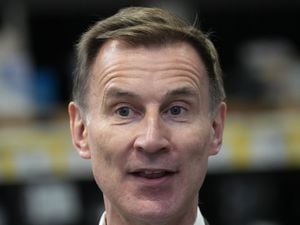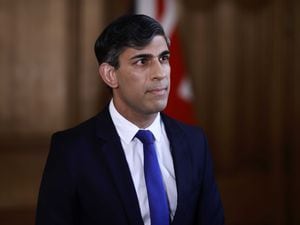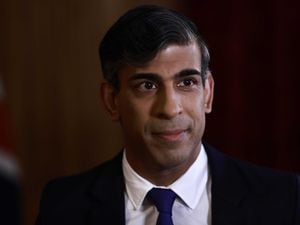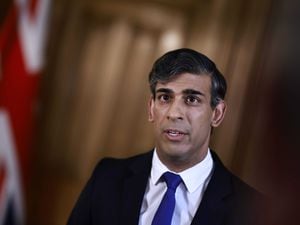Government wants to wait before deciding on future of civil partnerships
Supreme Court justices heard that ministers plan to draw up options and consult the public after September next year.
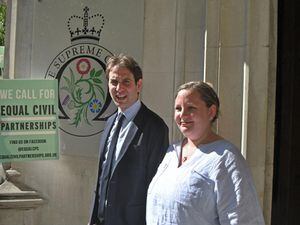
Ministers want to wait until next year before consulting on the future of civil partnerships.
Government lawyers told the Supreme Court the wait was “justified” so four whole years of data could be gathered following the introduction of same-sex marriage.
The court is hearing the case of Rebecca Steinfeld, 37, and Charles Keidan, 41, who want a civil partnership but are prevented by legislation which says only same-sex couples are eligible.
The academics, who live in Hammersmith, west London, suffered defeat at the Court of Appeal in February last year, but were given the go-ahead in August for a Supreme Court hearing.
A panel of five Supreme Court justices, including the court’s president Lady Hale, began considering the couple’s appeal on Monday.
He said civil partnerships are “essentially identical” to civil marriage and were created to give legal recognition to same-sex unions at a time “when society was not felt ready” to recognise such relationships as marriages.
Mr Eadie told the judges it is accepted Ms Steinfeld and Mr Keidan have a “genuinely held” objection to marriage, but the Government’s decision to “take some time” before deciding on the future of civil partnerships is “justified”.
He said: “These are highly sensitive social (and indeed political) issues in which the Government and Parliament are currently, actively and seriously engaged on a defined timescale and process.
“The process has taken some time – a fact that is in part due to an understandable and legitimate concern to gauge the reaction over a period of time to the introduction of the Marriage Act 2013.”
He later added: “The future of civil partnerships raises difficult questions of social policy for which there is no obvious answer and Parliament has a Bill before it with different options to deal with those difficulties.”
Mr Eadie told the court the number of civil partnerships formed in England and Wales fell by 85% in the first two years after the introduction of same-sex marriage.
She told the judges the couple are in a “long-term and committed heterosexual relationship”.
She added: “They share a profound and serious objection to the institution of marriage.
“Whilst the appellants wish to formalise their relationship, their conscience does not permit them to do so through marriage.
“Rather, they wish to enter into a civil partnership with one another.”
In a statement outside court before the hearing, Ms Steinfeld and Mr Keidan called on the Government to “stop making excuses” and give everyone the choice to enter a civil partnership.
The couple, who have two daughters aged eight months and two years, claim the Government’s position is “incompatible with equality law”.
The Court of Appeal agreed the couple had established a potential violation of Article 14 of the European Convention on Human Rights, which relates to discrimination, taken with Article 8, which refers to respect for private and family life.
But, by a majority of two to one, the judges said the interference was justified by the Government’s policy of “wait and evaluate”.
They heard the couple have deep-rooted and genuine ideological objections to marriage and wish to enter into a legally regulated relationship which does not carry “patriarchal baggage”.
The Government said it was decided, after public consultations and debate in Parliament, not to extend civil partnerships to opposite-sex couples, abolish them or phase them out at that stage.
The aim was to see how extending marriage to same-sex couples impacted on civil partnerships before making a final decision which, if reversed in a few years, would be disruptive, unnecessary and extremely expensive.
The hearing is expected to last two days.

